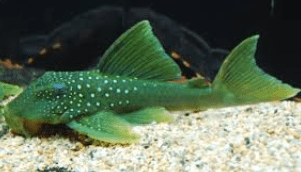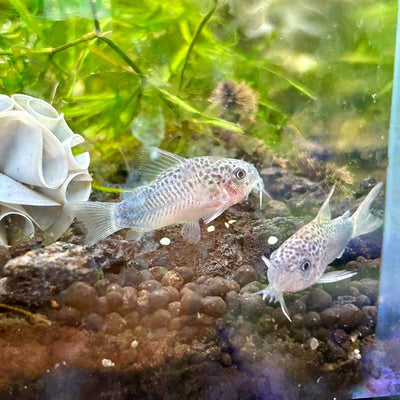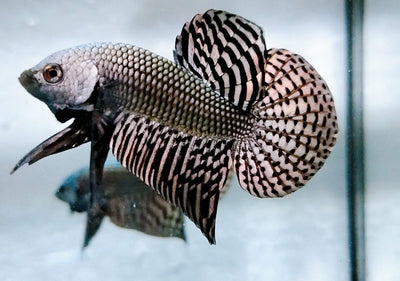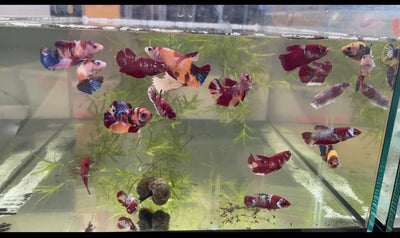The extremely important role of microorganisms in aquariums
Microorganisms play an extremely important role in the health and balance of aquarium ecosystems. They help maintain water quality, support fish health, and contribute to the overall stability of the aquarium. Here's a breakdown of how microorganisms contribute to an aquarium's success:
1. Breaking Down Organic Waste (Biological Filtration)
- Decomposers: Microorganisms like bacteria, fungi, and protozoa break down organic matter in the aquarium, such as fish waste, uneaten food, and plant debris. This process helps prevent the accumulation of harmful substances.
- Ammonia to Nitrites to Nitrates: Nitrogen-fixing bacteria (specifically Nitrosomonas and Nitrobacter) play a crucial role in the nitrogen cycle. These bacteria convert ammonia (toxic to fish) into nitrites and then into nitrates, which are much less toxic. Nitrates can be removed through water changes, planted tanks, or denitrifying bacteria.
- Avoiding Toxic Build-Up: Without these microorganisms, toxic substances like ammonia and nitrite would build up, leading to poor water quality and stressing or even killing the fish.
2. Supporting Plant Growth
- Nutrient Cycling: Microorganisms break down organic matter and release essential nutrients such as nitrogen, phosphorus, and potassium in a form that aquarium plants can absorb. This helps plants grow healthily and reduces the need for chemical fertilizers.
- Symbiotic Relationships: Certain microorganisms form symbiotic relationships with aquarium plants. For example, some bacteria in the substrate or water column can fix nitrogen, making it available for plant roots to absorb.
3. Improving Water Quality
- Decreasing Pathogens: Many microorganisms act as natural biocontrol agents by outcompeting harmful pathogens for resources. This reduces the population of harmful bacteria and fungi that could otherwise cause diseases in fish and plants.
- Clear Water: Certain types of bacteria help maintain clear water by breaking down suspended particles, such as uneaten food or dead plant matter, and turning them into smaller, biodegradable particles.
4. Supporting Fish Health
- Digestive Assistance: Some fish rely on microorganisms in their gut to help break down food and improve digestion. This is especially true for herbivorous fish that consume plant matter. These gut bacteria also contribute to overall fish health by aiding nutrient absorption.
- Probiotics: In some aquariums, especially those with delicate or stressed fish, introducing beneficial microorganisms can improve the fish's immune system, making them more resistant to disease.
5. Creating a Balanced Ecosystem
- Food Chain Support: Microorganisms are a fundamental part of the food web in aquariums. Many fish and invertebrates feed on microorganisms such as plankton, protozoa, or small algae, contributing to the overall biodiversity and balance in the tank.
- Supporting Invertebrates: Microorganisms are also vital for invertebrates like snails, shrimp, and certain types of filter feeders, as they consume microorganisms or rely on them for food.
6. Creating Biofilms and Natural Surfaces
- Biofilm Formation: Microorganisms form biofilms on surfaces in the aquarium, including rocks, substrate, and decorations. These biofilms are important for the overall ecosystem, providing a food source for herbivorous fish and invertebrates and helping to create a more natural environment for the fish.
- Surface Health: Healthy biofilms and microorganisms on surfaces contribute to overall tank health by promoting natural processes and reducing the risk of harmful pathogens taking hold.
7. Establishing a Stable Aquarium (Cycling)
- Tank Cycling: When setting up a new aquarium, establishing a stable population of beneficial bacteria is crucial. These microorganisms help “cycle” the tank by converting harmful waste products into less harmful substances. This process is called cycling the tank, and it’s essential before introducing fish to avoid toxic spikes in ammonia and nitrites.
How to Encourage Healthy Microbial Life in Aquariums:
- Maintain Proper Water Quality: Regular water changes and good filtration are key to providing a healthy environment for beneficial microorganisms.
- Avoid Overfeeding: Excess food can increase waste and disturb the balance of microorganisms.
- Use Biological Filters: These filters promote the growth of beneficial bacteria that help with waste breakdown.
- Incorporate Live Plants: Live plants provide surfaces for microorganisms to thrive, and they also help improve water quality.
- Be Mindful of Chemicals: Avoid excessive use of chemicals or disinfectants, as these can harm beneficial microorganisms.
In short, microorganisms are indispensable to maintaining a healthy and thriving aquarium ecosystem. They contribute to biological filtration, nutrient cycling, and overall water quality, making them a cornerstone of successful aquarium care.






